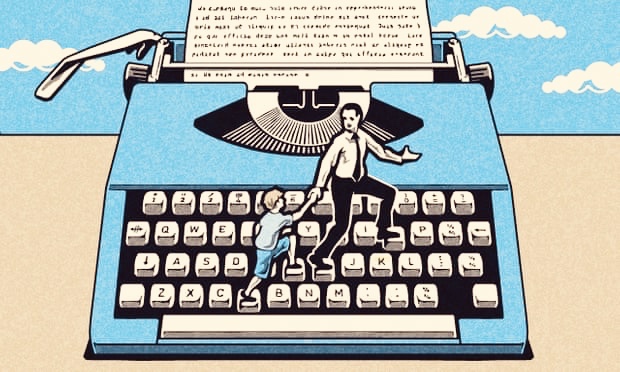SHARANYA KANVILKAR writes from Bombay: The proprietors, promoters and publishers of India’s newspapers and magazines haven’t had a word to say on some of the biggest issues confronting Indian media—and directly impacting the trust and faith of the reader—in recent years.
Paid news, in which advertisements are couched as news? Silence.
Private treaties, in which vested interest is touted as ads? Silence.
Medianet, in which anybody can buy his or her way into the paper? Silence.
Cross-media ownership, which results in monopolies shutting out choice? Silence.
Dubious ownership, in which crooks, criminals and the corrupt become media barons—and underwrite major industry conventions? Silence.
Predatory pricing, which strangles small newspapers? Silence.
Dumping of copies to pump up circulation numbers? Silence.
Complicity of journalists with lobbyists? Silence.
The killing of journalists in the line of duty? Silence.
But the big guns of the Indian Newspaper Society (INS)—which represents 1.017 small, medium and large members—have suddenly sprung into life as one in slamming the recommendations of the G.R. Majithia wage board with the undisguised intent of blocking its implementation.
In just the first 15 days of this month, The Times of India has published four articles on the subject:
# June 2: The paper’s CEO Ravindra Dhariwal weighs in on the subject in an edit-page piece titled “Muzzling the Media”
# June 4: “Wage board proposal will force many newspapers to shut down: INS”
# June 6: “Wage boards challenged in Supreme Court” on the Ananda Bazaar Patrika group filing a petition in the Supreme Court
# June 9: INS president Kundan R. Vyas authors another editor-page piece titled “Future of Press at stake?“
And now, ToI and The Economic Times have published an INS advertisement on its pages, essentially encapsulating the key points wage board opponents have been making for years.
For good measure, Ashish Bagga, the CEO of the India Today group and a prominent functionary on INS, has written an opinion piece titled “How to kill the print media” in the latest issue of the magazine, and Hindustan Times has a report titled, “Wage board outdated: experts“.
The theme of all the pieces is the same: 1) The newspaper industry is the only industry in the country to have a statutory wage board; even other sectors of the media, like TV, radio, internet don’t. 2) The wage hike recommended takes salaries of non-journalistic staff way beyond what the government itself pays its staff. 3) The wage board recommendations could end becoming a convenient tool for the government to turn the screws on inconvenient newspapers and agencies.
All fair points, no doubt, when viewed purely through the prism of the bottomline. But it is not so much the loyalty of journalists that INS is bothered about in opposing the wage board recommendations (most in the big newspapers are now on contract) but the disloyalty of non-journalists in not falling in line.
Easy hire-and-fire policies may yet be a legitimate objective to follow for proprietors, promoters and publishers to achieve efficiency, but where is the INS when other questions of importance confront journalists and journalism, many of which affect the small players in whose name they are fighting the battle against the Majithia board?
Also read: INS: “We reject wage board recommendations”
External reading: Wageboard for journalists









Times Now ran a similar plug last night.
The odd thing is that in all the stories on the wage board recommendations put out by The Times of India group, none of them quotes a single journalist or a union worker. It is as if the other side doesn’t exist.
So much for the journalism that The Times says it is trying to protect.
It’s high time to hike journalists (print media) pay scale. How can you expect someone who earns Rs 8000-Rs 12000 to be fair and square in their reporting especially when following political and business news. I have noticed that many journalists are very happy even when they received some little ‘gifts’ when launching new products and schemes…why don’t the employers pay them well.???? It’s a bullshit game the INS is playing and how shamelessly the TOI and now Times Now is launching a smear campaign against the very people who make what it is today.
TOI has been one of the most scrupulous manipulator of the Wage board and now they have completely muzzled the voice f their own reporters.
Dedicated journalists risk even their lives and the tribe deserve a ‘decent pay’ package. Journalists speak for the voiceless but who is there to speak for them???? There are also stories doing the rounds that some newspaper owners even forbid their news editors/editors to carry news about journalists unions going on strike or even their press statements. What is this??? Is this not exploitation??? Is this not muzzling the real voice of the press????
It is perhaps the right time for the journalists to syndicate themselves- I agree that most of the journalists would be precluded from belonging to any such arrangement,but the shock-waves that such a move would send is potent enough to disrupt the present discourse.Such syndications which are common in the West has made sure that journalists with the ability to corner a devoted readership end up enriching themselves much more than would have been possible otherwise-with some of them even ending up owning major media outlets, albeit in the ‘unconventional’ space viz. talk radio(internet as well as FM) and blogs, both now major streams of revenue for even established media houses.
However, the irony of the INS suddenly jumping from death-like stillness and decrying the ‘muzzling’ of press freedom-something that they have been all too glad to surrender, is not entirely lost.I hope they show the same sense of duty and expose the same government’s misdeeds and get back at them in a more positive vein.